Cyber security tips you need to know in 2019
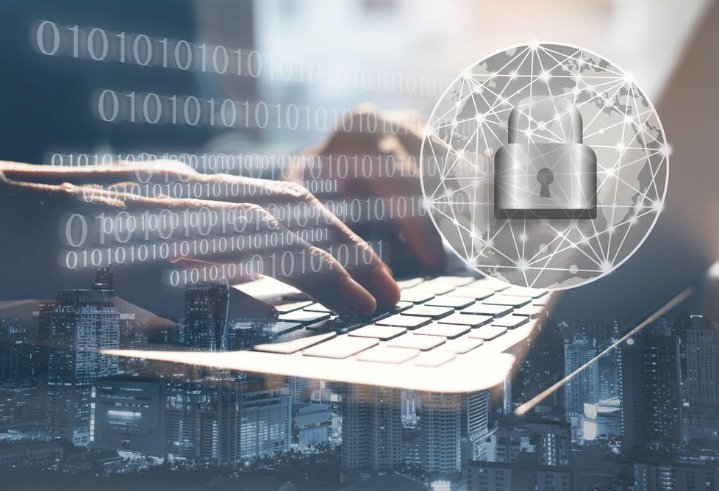
According to the ACIC, cybercrime is costing the Australian economy up to $1 billion annually in direct costs alone. In addition to the loss of money, cybercrime causes collateral damage including:
- damage to personal identity and reputation
- loss of business or employment opportunities
- emotional and psychological stress
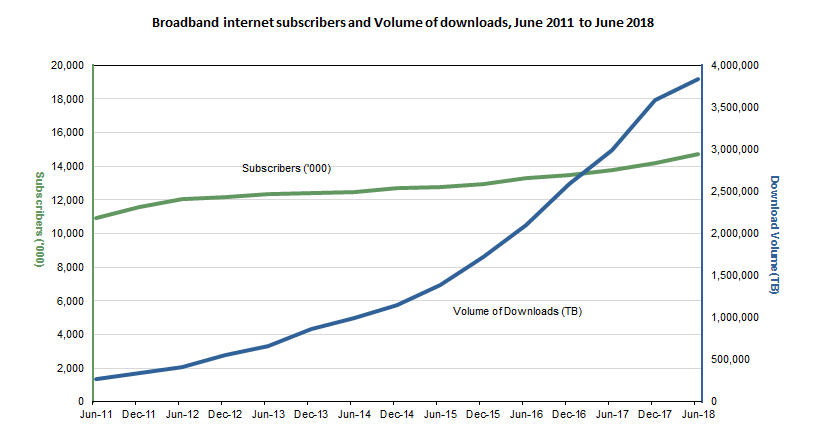
Internet use is becoming a daily lifestyle routine for the average Australian. For example, based on the most recent ABS data:
- the total volume of data downloaded in the three months ending 30 June 2018 in Australia was 3.8 million terabytes,
- mobile subscriptions increased by 1.8 percent with active social media users increasing by 1 million users (5.9 percent increase),
- the number of mobile social media users increasing by 6.7 percent.
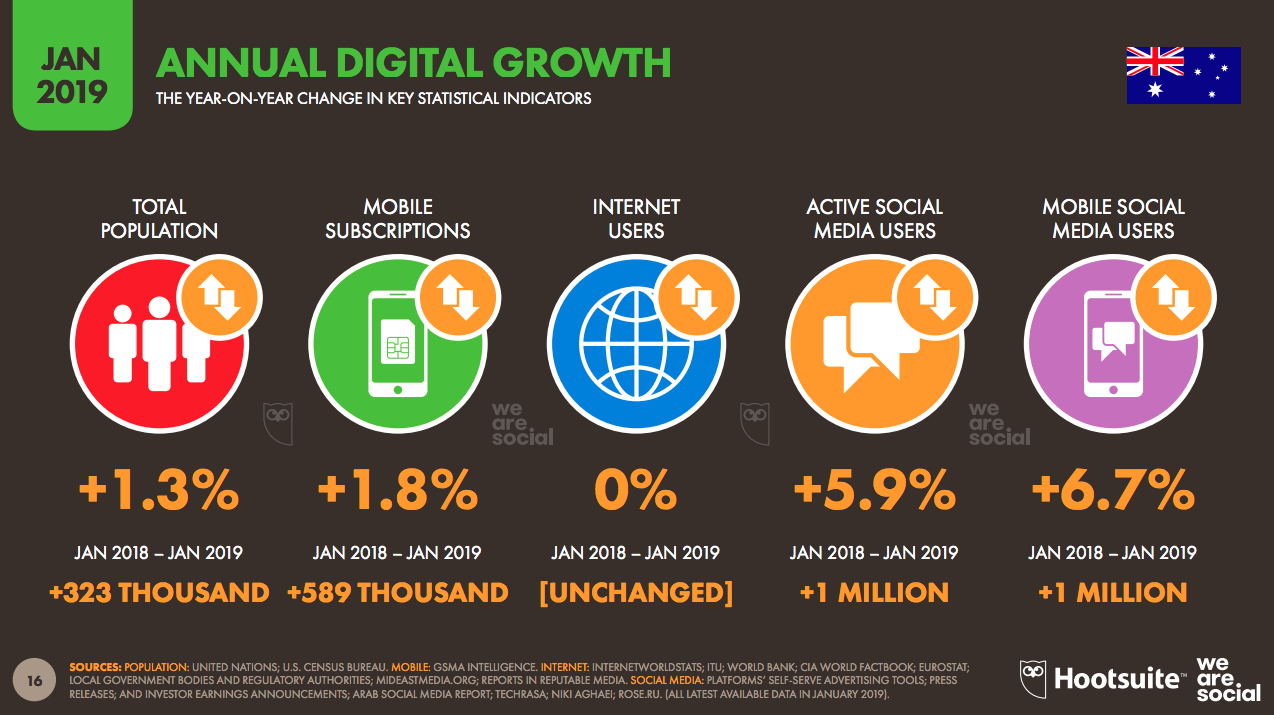
Therefore, staying safe in the digital world should be on your radar.
Here are some safety tips on how you can protect yourself, your loved ones, and business from cybercrime.
What is cyber safety?
Cyber safety refers to the responsible use of the internet and other digital platforms which protect an individual from malicious intent. Unfortunately, there are people and organisations that profit from cybercrime.
Why does online safety matter to you?
Whilst some people are already aware of certain safety measures online, many of us would not think twice about certain practices, which may lead to malicious malware, identity theft and/or unwanted contact.
The office of the eSafety Commissioner was established in 2015 to protect at-risk Australians. Similarly, ThinkUKnow, an Australian Federal Police initiative, identifies children as the most vulnerable group to cyber problems. According to Symantec, more than half of parents are unaware that their children can be victims of identity theft too.
Who is most at-risk to cybercrime?
Children can be particularly vulnerable online, especially as targets of online grooming. Even with adequate parental supervision, children often do not tell their parents about online incidents.
Older adults are also susceptible to cyber crimes. FBI data (2018) shows that older adults across America are going online in record numbers, with many older adults opening social media accounts. However, this also means that there are more targets for scammers.
Even huge organisations are susceptible to cybercrime:
- Canva, a start-up with a $1 billion valuation fell victim to a security breach in May 2019 (source).
- Similarly, Adobe Systems was hacked in 2013, placing 152 million records at risk (source).
- Later in 2014, Sony Pictures had 100 terabytes of media stolen (source)
In 2019, Facebook unintentionally uploaded 1.5 million people's email contacts without their consent (source).
Australians can stay up to date with current scams (and report scams) via scamwatch.gov.au
What are the primary forms of cybercrime?
- Phishing.
- Identity crime.
- Cyberbullying.
- Viruses and malware.
- Inappropriate content.
1. Phishing.
Based on a 2016 report conducted by Symantec Corporation, nearly 3 out of 10 people cannot detect a phishing attack and another 13 percent have to guess between a real message and a phishing email.
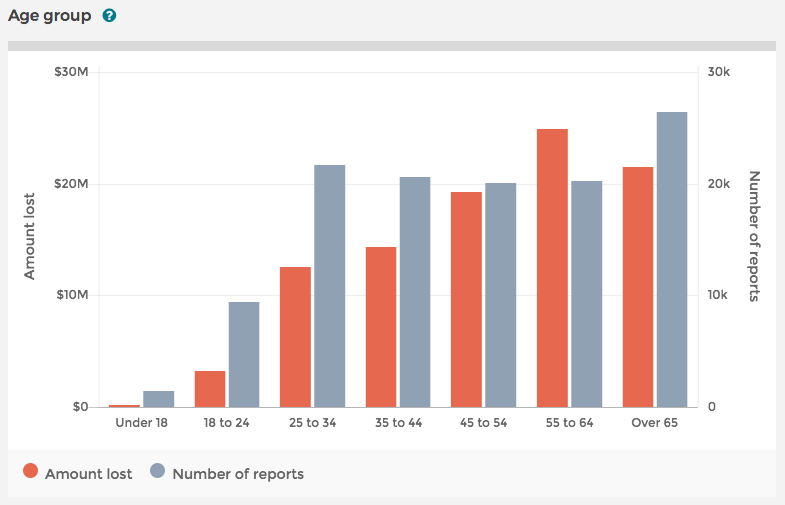
In 2018, there were 24,291 reports of phishing incidents with November being the most profitable month for scammers. According to ACCC data, $AUD 933,470 was lost to phishing scams with investment and dating/romance being the most prevalent scam categories.
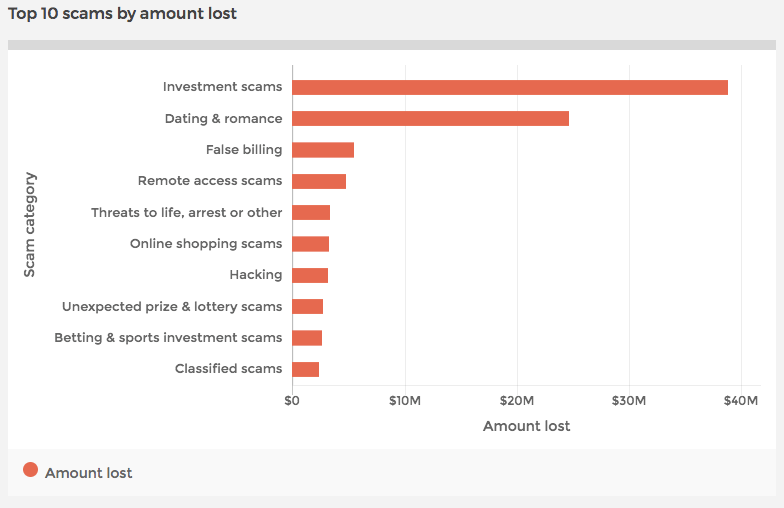
What exactly is phishing?
Phishing is the cyber-attack practice of gaining information and access to personal accounts through a disguised email. It often poses as a reputable site, such as your bank or a real person you know.
In the below image, the phishers are impersonating the Office of State Revenue and, it looks real. However, upon careful inspection of the source email, it becomes obvious that it is a scam.
Popular phishing scams will ask for usernames and passwords, bank details, verification of accounts or date of birth. They portray elements of urgency to get you to act immediately and not investigate the veracity of the email.
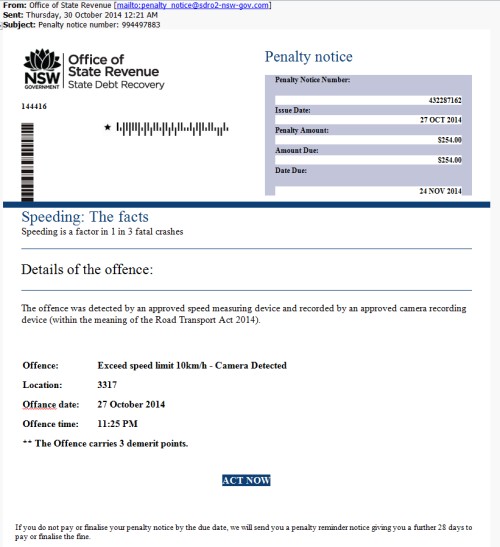
Phishing safety tips
- Crosscheck the actual email, not just the alias found in the name field
- Hover over links and inspect where the URL points to
- Never click on links from unknown senders, and;
- Always remember that no financial institution will ever ask for your password via email
2. Identity crime.
According to the AFP, identity crime costs Australia upwards of $AUD 1.6 billion each year, with $AUD 900 million lost by individuals through credit card fraud, identify theft and scams. Identity crime costs Australia a staggering $AUD 15 billion per year.
Identity crime is an umbrella term to describe offences in which a perpetrator uses an identity that has been fabricated, manipulated, stolen, and/or assumed, in order to facilitate the commission of a crime(s).
For example, personal information can be used to claim government benefits, mask criminal activity, target people in your social circle, and a means to make you pay to access your own data.
Specifically, a criminal can:
- apply for a credit card in your name
- open a bank account in your name
- run up debts or obtain a loan in your name
- apply for a driving licence in your name
- apply for a passport in your name
- apply for utilities in your name
How can you protect yourself from becoming a victim of identity crime?
Here are some simple measures to reduce the risk of having your personal information stolen or misused:
- use the most secure settings on social media platforms
- install a lock in your letterbox to prevent sensitive material from being stolen
- resist the urge to save your credit card number in your web browser's autosave
- use unique passwords for different accounts (and do not write them down), alternatively, use a password manager so that you do not have to memorise them or write them down
- always shred your mail before you recycle them
- do not watch pirated content online
- only use public computers and unsecured wireless hotspots in emergency situations when performing online transactions
- review your bank transactions on a regular basis
What should you do when you fall victim to identity crime?
If you or your business is a victim of identity crime, you can apply for a Commonwealth Victims' Certificate. This may help you negotiate with them to re-establish your credentials or to remove a fraudulent transaction from their records.
For more information, visit the Australian Government Department of Home Affairs webpage and Australian Cybercrime Online Reporting Network.
3. Cyberbullying.
Cyberbullying is a practice where an individual or group uses the internet to ridicule, harass or harm another person. It is not exclusive to children.
According to DoSomething.org:
- 4 out of 5 kids have been bullied online
- 1 in 4 children have had it happen more than once
- only 1 in 10 victims will inform a parent or trusted adult of their abuse
- girls are twice as likely as boys to be victims and perpetrators of cyberbullying
- bullying victims are 2 to 9 times more likely to consider self harm
Similarly, bullyingnoway.gov.au reports that online bullying appears to be related to age or access to mobile phones, with high school students more likely to engage in cyberbullying than primary school students.
"Every time there is a new platform where people can communicate, it provides a new way for people to harass others", says cyber harassment litigation attorney Ruth Carter.
As sexting becomes more socially acceptable, the risk of revenge porn increases. According to cyberbulling.org:
- 90 percent of non-consensual porn victims were women.
- 9 in 10 women say that they have experienced significant emotional distress due to being a victim.
What should you do when you fall victim to cyberbullying?
- Do not blame yourself.
- Ignore (if possible) by blocking individuals and their online behaviour on social media platforms.
- Do not respond to abusive text messages.
- Keep a record of bullying messages you receive in the form of screenshots.
- Tell someone you can trust about the bullying, for children specifically, you can always reach someone via Kids Helpline (phone number 1800 55 1800).
- Report the harassment to law enforcement officers.
- If the bullying occurs on a social network, report the bullying to the platform as it is against their usage policy.
4. Viruses and malware.
Malicious software is designed to damage or secretly access a computer system without receiving the informed consent of the owner or user of the system.
Malware often disguises itself as a legitimate application. Email is the number one vehicle for both malware distribution and phishing.
In May 2019 alone, 85 percent of all emails sent in the month was spam.
How can I minimise the risk of falling victim to malware in the online world?
- Think before opening email attachments, especially .exe files.
- Never download unfamiliar software and avoid watching illegal content online.
- Backup your computer, as well as your data, on an external hard drive.
- Keep third-party website plugins and CMS up to date.
- Backup your website, frequently.
- Avoid visiting suspicious web pages.
- Refrain from clicking on a pop-up advertisement.
What can you do when you fall victim to malicious software?
You can purchase malware scanning software from reputable companies (e.g., McAfee, Norton, and Kaspersky) for any operating system.
If you suspect that your website has been hacked, you may hire a malware removal specialist to review your site. Be prepared that it may be necessary to delete all the files from your server.
5. Inappropriate content.
Inappropriate content refers to the material that is harmful to minors. This includes pornography, improper material or disturbing and violent content.
Most internet users will have come across inappropriate content by accident. Some sites that encourage eating disorders or self-harm can create an environment where users may normalise behaviour that is harmful.
According to a 2016 review by the Australian Institute of Family Studies, young people over the past three decades had increased exposure to violent pornographic material available online. With better internet connectivity and ease of access via mobile phones and tablets, online pornography has contributed to the likelihood of children's accidental exposure to inappropriate content.
Many public websites with violent, pornographic and anti-social content are not illegal. Therefore, it is the role of parents and guardians to monitor and manage internet use.
How can you as a parent practice cyber safety at home?
- Have a discussion early on with your children about what is not appropriate and why.
- Deploy parental controls.
- Explain to your children why they should not share their personal information online.
- Reassure them that they can come to you for anything.
- Model screen time behaviour.
For tips and advice on helping your child have a safe and enjoyable experiences online, refer to esafety.gov.au.
Want to start a career in cyber security?
If you have a strong interest in cyber security and want to turn it into a career, check out Upskilled’s ICT50120 - Diploma of Information Technology (Cyber Security). The course will cover topics such as designing and implementing security systems, integrating sustainability in the planning and design of ICT projects, and implementing secure encryption technologies.
The online course is self-paced and can be completed within 12 months, leading to potential career outcomes such as network security specialist and network security engineer. Contact one of Upskilled’s friendly education consultants and kickstart your career in cyber security today.


)
)

